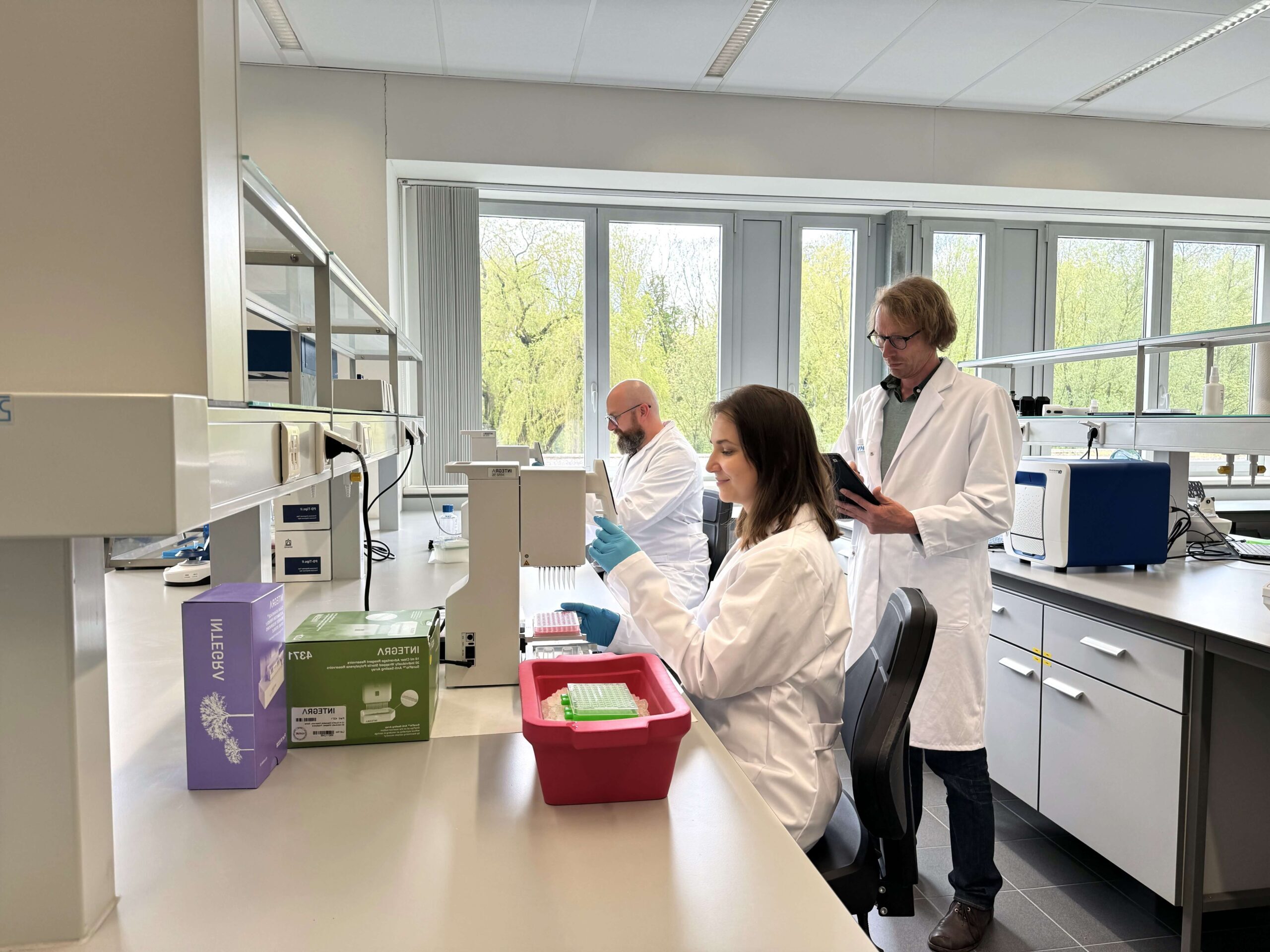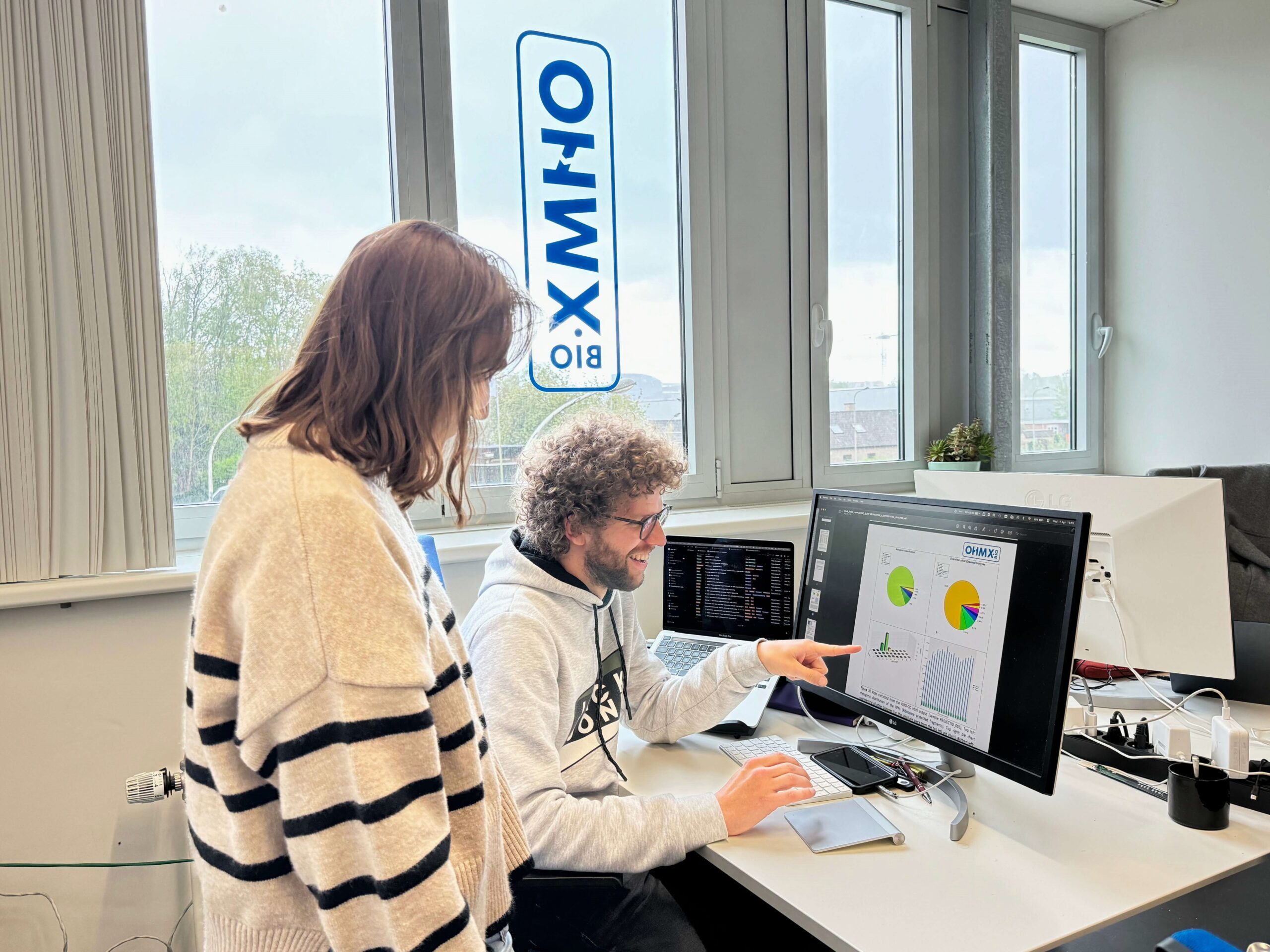This website uses cookies so that we can provide you with the best user experience possible. Cookie information is stored in your browser and performs functions such as recognising you when you return to our website and helping our team to understand which sections of the website you find most interesting and useful.
Cookie statement
Last updated: 19-09-2024
This cookie statement is drafted and managed by OHMX.bio NV,
hereafter referred to as “OHMX.bio”.
OHMX.bio has its headquarters at Proeftuinstraat 86, 9000 Gent, Belgium, registered with company number XXX.
For all questions and/or remarks, please contact us at the address mentioned above or at the e-mail address privacy@ohmx.bio.
USE OF COOKIES
OHMX.bio considers it important that you can view, listen to, read or experience our website content at any place and at any time via various media platforms. We want you to be able to use interactive features and provide services tailored to your needs. Therefore OHMX.BIO uses online techniques like cookies, scripts and similar technologies (hereafter referred to as ‘cookies’). These help us facilitate the use of the website and improve its functionality, by collecting (personal) data of our website visitors via their website usage.
In this cookie statement, OHMX.bio wishes to inform you what kind of cookies are used and why.
OHMX.bio can amend the cookie statement at any time. This can happen, for example, in the context of changes to its services or the applicable legislation. The amended statement will then be published on the OHMX.bio websites and will apply from the moment it is published.
If the use of certain cookies also involves the processing of “personal data”, the OHMX.bio Privacy Statement is also applicable.
WHAT ARE COOKIES?
A cookie is a small data file that is installed in the browser of your computer or mobile device by a website's server or application when you visit a website or use a (mobile) application.
The cookie file contains a unique code with which your browser can be recognized during the visit to the online service or during consecutive, repeated visits. They generally make the interaction between the visitor and the website or application easier and faster and help the visitor to navigate between the different parts of a website or application. They allow us to retain certain settings, such as your language choice or to optimize your user experience.
There are different types of cookies that can be distinguished according to their origin, function and lifespan. This is explained further in the next section.
TYPES OF COOKIES
How long are cookies stored?
Cookies can be stored on your computer or mobile device for different periods of time. Depending on the type, they (and the information they collect) are automatically deleted when you close your browser (these are the so-called “session cookies”), in other cases, these remain stored for a longer period of time and can also be used during a subsequent visit to this website (these are the so-called “permanent cookies”).
Consult the detailed information on OHMX.bio cookies (below) to know the retention periods.
Who places and manages cookies?
First-party cookies
First-party cookies are managed by OHMX.bio and are specific to the visited or used online service.
Third party cookies
Third party cookies are managed and placed by a third party. This happens during your visit or use of the website. These ensure that certain information is sent to third parties by your visit to the website.
Why cookies?
Necessary cookies
Necessary or essential cookies are necessary for the operation of the website. It is therefore advised not to disable these.
Functional cookies
These are cookies that ensure that the website functions properly. Examples of some functions performed:
- remembering your login details
- ensuring the security of your login details
- ensuring the uniformity of the layout of the website
Performance and analysis cookies
On the basis of these cookies, information is collected about the way visitors use our website. This is done with the intention to improve the content of our websites, to further adapt it to the wishes of the visitors and to increase the usability of our websites. Like for example google analytics.
Social media cookies
The website can implement so-called embedded elements of other third parties, such as YouTube, Twitter and Facebook. These are used to integrate social media into the website via plug-ins.
Other cookies
These are cookies that do not belong to one of the above categories. For example, cookies that can be used to make web analyzes themselves to optimize the website. In addition to the above-mentioned performance and analysis cookies, other web analysis cookies can be used. These will probably have to be disabled because identifiable personal data may be processed here. This is not the case with the mentioned performance analysis cookies.
OHMX.bio uses different types of cookies.
| Cookie | Description | Duration | Type |
| cookielawinfo-checkbox-necessary | This cookie is set by GDPR Cookie Consent plugin. The cookies is used to store the user consent for the cookies in the category "Necessary". | 1 hour | Necessary |
| __utma | This cookie is set by Google Analytics and is used to distinguish users and sessions. The cookie is created when the JavaScript library executes and there are no existing __utma cookies. The cookie is updated every time data is sent to Google Analytics. | 2 years | Performance |
| __utmc | The cookie is set by Google Analytics and is deleted when the user closes the browser. The cookie is not used by ga.js. The cookie is used to enable interoperability with urchin.js which is an older version of Google analytics and used in conjunction with the __utmb cookie to determine new sessions/visits. | | Performance |
| __utmz | This cookie is set by Google analytics and is used to store the traffic source or campaign through which the visitor reached your site. | 5 months | Performance |
| __utmt | The cookie is set by Google Analytics and is used to throttle request rate. | 10 minutes | Performance |
| __utmb | The cookie is set by Google Analytics. The cookie is used to determine new sessions/visits. The cookie is created when the JavaScript library executes and there are no existing __utma cookies. The cookie is updated every time data is sent to Google Analytics. | 30 minutes | Performance |
HOW CAN YOU TURN OFF COOKIES?
If you choose to disable cookies, you can do so for the browser you use:
If you use different devices to visit this website, make sure that your cookie preferences are set on the browser of every device.
Please note that disabling certain cookies may result in the malfunction of related features on the website e.g. certain graphics may not show the way they are meant to, or you may not be able to use certain services.
CHANGES TO THIS COOKIE STATEMENT
OHMX.BIO may amend this Cookie Statement in accordance with certain technical, legal or commercial requirements and developments. We will inform you accordingly, taking into account the importance of the changes that have been made. You may find the date on which this Cookie Statement was last modified at the top of this Cookie Statement.






